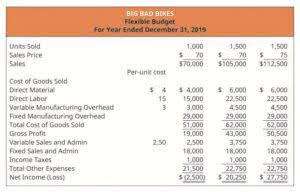Biden’s son Hunter hit with gun charge, first for a US president’s child
April 14, 2023
Bookkeeping
Content
- What skills are necessary for full charge bookkeepers?
- What are the educational or training requirements for becoming a full charge bookkeeper?
- Interested in a Full Charge Bookkeeping Role? Read This
- questions to ask yourself before hiring a bookkeeper
- What Is the Difference Between a Ful-Charge Bookkeeper and a Regular Bookkeeper?
- The Cost of Not Keeping Accurate Records
- Required Bookkeeping Education and Experience

To be exceptional at these tasks, accountants must complete years of training and earn special certifications, which their salaries reflect. Depending on the type of accountant, years of experience, and certifications, you could be paying a pretty penny. Compared to a regular bookkeeper, a full charge bookkeeper has much more control over your general ledger. They prepare and enter journal entries for fixed assets and depreciation, which is a significant difference. Additionally, to make sure general ledger accounts are in balance each month, your full-service bookkeeper will conduct a trial balance. A bookkeeper who has been given the “full charge” designation assumes full responsibility for the accounting functions of their organization.
- There is no magic number to know when you’re ready to take on a bookkeeper for additional support.
- The difference between a full charge bookkeeper and a controller is that a controller normally has the power to influence a business and make financial decisions intended to drive a business forward.
- They must tune in to the finest of details and make accuracy a top priority.
- In larger organizations, these more complex accounting tasks would normally be handled by an accountant or controller.
- When we compare a full charge bookkeeper vs. an accountant, we can clearly see that the main difference between the two jobs is that an accountant deals with financial analysis and has to be familiar with tax laws.
- A full charge bookkeeper is that same make of car but with the upgraded package that includes heated and power seats, power windows and mirrors, and most importantly, comes with a higher price tag.
What is the full charge bookkeeper’s role in comparison to an accountant’s, then? Although FC bookkeepers do provide accounting services, they usually don’t act as financial advisors or deal with auditing and tax reports. Full charge bookkeepers usually seek external assistance full charge bookkeeper from a certified public accountant or a controller. If you’re interested in becoming a Full Charge Bookkeeper, there are a few things you can do to improve your chances of success. First, consider pursuing a degree or certificate in accounting or bookkeeping.
What skills are necessary for full charge bookkeepers?
On the other hand, if you’d like to use the time you spend bookkeeping focusing on other aspects of your business, then the cost of a bookkeeper may be worth it. Bookkeeper salaries vary state by state (see our chart below), and depending on where you live, you could be paying a large difference in one place versus another. A better option would be to use a service like QuickBooks Live virtual bookkeeping, where your bookkeeper costs would not be affected by where you live but rather how much your business expenses are per month.
Although full charge bookkeepers are responsible for a business’s accounting, they are not accountants or Certified Public Accountants. In this role, you may help prepare financial statements and tax returns for your employer, who then submits them to a CPA for review or auditing. A high school diploma or an equivalent is necessary to work as a regular bookkeeper.
What are the educational or training requirements for becoming a full charge bookkeeper?
They usually have more responsibilities than regular bookkeepers and are often in touch with the company’s CEO and upper management. Therefore, a full-charge bookkeeper can handle many different things concerning finances. It is in their job description to perform tasks that fall between basic bookkeeping and accounting. It is a two-in-one role that can be ideal for the needs of certain mid-size businesses and even larger ones, which have relatively simple accounting transactions and don’t need a controller. They are often engaged by growing businesses that cannot handle all the financial tasks on their own.
There is no magic number to know when you’re ready to take on a bookkeeper for additional support. Instead, it’s more of a holistic view of time, resources, and the ability to become more efficient that will make or break your decision. The difference between a full charge bookkeeper and a controller is that a controller normally has the power to influence a business and https://www.bookstime.com/ make financial decisions intended to drive a business forward. Accountants are responsible for using the financial data organized by the bookkeeper to create forecasts and budgets for the purpose of advising senior management. Normally, the in-house bookkeeper is mainly responsible for basic bookkeeping activities and does not generally take on any managerial work.
Interested in a Full Charge Bookkeeping Role? Read This
Full charge bookkeepers perform all the tasks regular bookkeepers do, along with full-cycle accounting duties, except for those that can be done only by a certified public accountant. Full charge bookkeepers, on the other hand, are able to analyze financial statements, offer consulting services, and do some internal auditing and tax preparation. However, as they are not certified public accountants, the company would often need to consult a certified public accountant for external audits and tax returns. FC bookkeeping is a term that refers to professionals who are fully responsible for a small or medium-sized business’s full-cycle accounting and bookkeeping needs.






